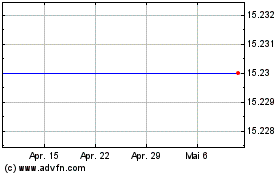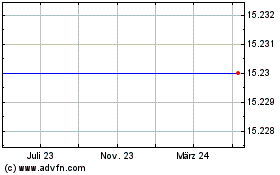By William Boston
This article is being republished as part of our daily
reproduction of WSJ.com articles that also appeared in the U.S.
print edition of The Wall Street Journal (May 31, 2019).
BERLIN -- As the leaders of Renault SA and Fiat Chrysler
Automobiles NV discuss their plans for creating a new car behemoth,
they may want to study the industry's previous deals to discover
why big auto mergers often fail.
In 1998, Bob Eaton, Chrysler's chairman and chief executive, and
Jürgen Schrempp, CEO of Daimler, met in New York to seal what would
become a textbook doomed merger.
The deal ran into its first roadblock even before it was
finalized that day, The Wall Street Journal reported at the time,
when the two men argued over what to call the new company,
disagreeing over whether Daimler or Chrysler should come first in
the new company's name.
"It was a very emotional issue at the end, emotional on both
sides," Mr. Schrempp said in an interview at the time. "We both
felt strongly." Ultimately, they agreed on DaimlerChrysler.
The argument over the name exposed a cultural mismatch, common
in so-called mergers of equals. The companies parted ways less than
a decade later.
As Fiat Chrysler and Renault enter their possible partnership,
industry and merger experts are warning against the pitfalls that
have ended other such tie-ups.
When mergers fail, analysts say, it's often because of
unrealistic expectations the companies have of each other or of the
benefits the deal can actually deliver. The companies also fail to
grasp that in any merger, one partner will have to take the lead,
analysts say.
"There is no such thing as a merger of equals. There is always a
dominant partner," said Susan Cartwright, a professor of
organizational psychology at Lancaster University in the U.K. who
studies the impact of mergers on employees.
In the case of FCA and Renault, the two companies are no longer
led by their larger-than-life bosses -- FCA's Sergio Marchionne and
Renault's Carlos Ghosn -- limiting the risk factor of outsize
personalities.
FCA and Renault also have little overlap and could share
technologies, lowering the need for job cuts and increasing the
opportunity of cost saving. In their public statements, FCA and
Renault have targeted at least EUR5 billion ($5.59 billion) in
annual savings.
But mergers of big mass producers like car makers are driven in
part by seeking scale as a way to lower a product's unit cost.
Achieving these savings, or synergies, requires succeeding in the
game of give-and-take, where mergers like the one between Daimler
and Chrysler fell short.
Sharing electric-vehicle technology, one of the bigger drivers
of the FCA-Renault deal, is probably the easiest to accomplish.
Fiat and Chrysler have little viable electric-car technology, while
Renault's Zoe and its partner Nissan Motor Co.'s Leaf are the
best-selling economy-size battery vehicles on the market.
"Fiat Chrysler will just adopt the electric technology from
Renault," said Stefan Bratzel, founding director of the Center of
Automotive Management in Bergisch Gladbach, Germany. "The hard part
comes when they start talking about the overlap in conventional
engines."
Similar vehicles built by Renault, Fiat and Chrysler also would
have to use the same basic parts. Volkswagen AG improved
profitability by repurposing its factories in 2012 to allow all its
passenger car brands to share the same technology and produce each
other's cars.
Renault's advantage in electric cars could create room for
cooperation but also tension between Fiat and Chrysler engineers,
as Daimler engineers used to lord the company's premium technology
over Chrysler's, which was geared for mass-market vehicles, Mr.
Bratzel said.
"Many engineers didn't want to work together as a result," he
said.
FCA and Renault declined to comment for this article.
Fiat Chrysler wasn't itself a merger of equals. Fiat initially
gained a 20% stake in Chrysler in 2009 as the American company
emerged from insolvency proceedings. Fiat later raised the stake to
a majority and the two companies formally merged in 2014. The
American side of the business has consistently generated some 90%
of the overall company's earnings.
Merger complications are nothing new. Taking advantage of the
Great Depression in 1929, General Motors Co. bought a struggling
Adam Opel AG. But in the 1980s, GM's European business fell on hard
times and after nearly two decades of losses, GM Chief Executive
Mary Barra finally sold the company to Peugeot SA.
When Peugeot chief Carlos Tavares unveiled his plan for the
German car maker at Opel's headquarters in 2017, union
representatives praised his decision to let it produce for export
again, something GM had limited. The move galvanized the workforce,
and within 18 months Opel was returning profits and exceeding its
synergy targets.
"Just because you recognize synergies there is no guarantee that
you will realize them without good management of the people," Ms.
Cartwright said.
Car makers aren't only competing with each other, they also face
a growing threat from technology companies that see vehicles as a
source of data.
Despite the huge costs of developing electric cars and
self-driving vehicles, BMW and Daimler have overcome any rivalry to
jointly develop car-sharing and ride-hailing services. They also
are combining to develop self-driving car technology.
The success of any FCA-Renault deal could hinge on the two
companies' strategy for addressing these new themes and inspiring
both workers and investors, analysts say.
"If, in the end, it's only about squeezing a few more synergies
out of the old automobile world, that wouldn't be enough," Mr.
Bratzel said. "They need to come up with a convincing strategy for
these new mobility fields and technology to compete against the big
data players."
Write to William Boston at william.boston@wsj.com
(END) Dow Jones Newswires
May 31, 2019 02:47 ET (06:47 GMT)
Copyright (c) 2019 Dow Jones & Company, Inc.
Fiat Chrysler Automobile... (NYSE:FCAU)
Historical Stock Chart
Von Mär 2024 bis Apr 2024

Fiat Chrysler Automobile... (NYSE:FCAU)
Historical Stock Chart
Von Apr 2023 bis Apr 2024
